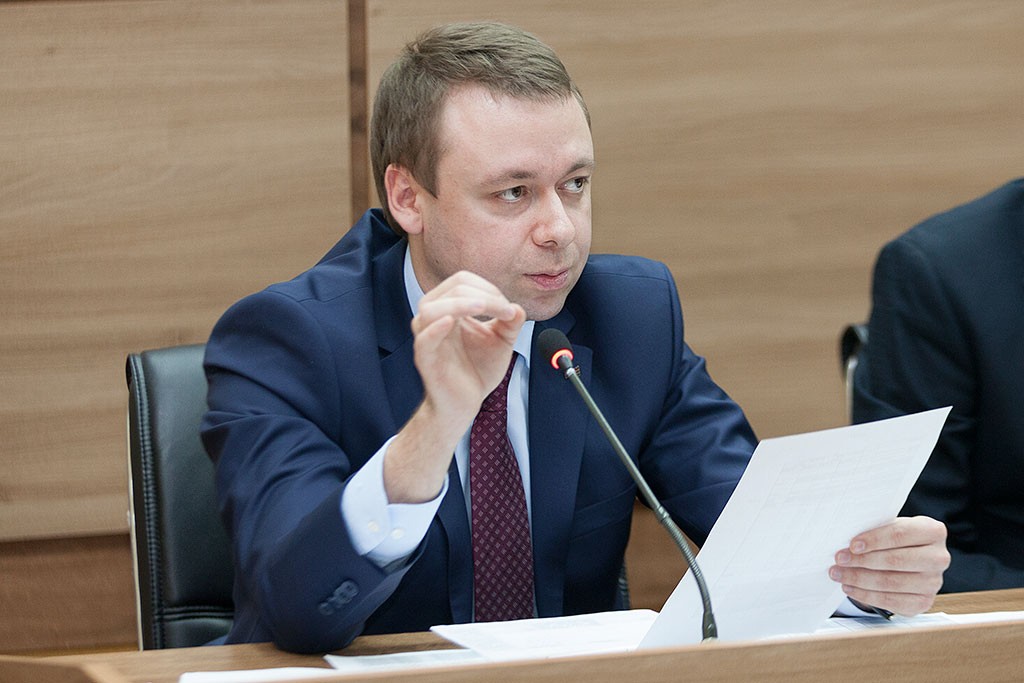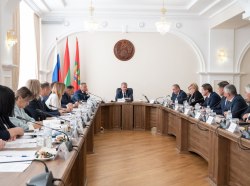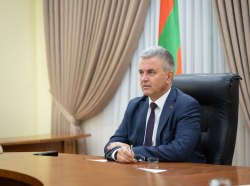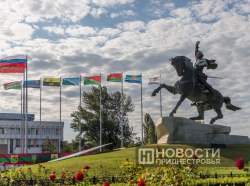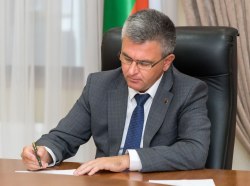The government will reduce the tax burden by 10-15% particularly in the industrial sector since 2018. In the period of three-five years, the authorities are going to achieve substantial economic growth. In order to achieve this goal, a series of reforms have been launched in Pridnestrovie. Pridnestrovie's prime minister Alexander Martynov said in an interview with Russia's Moskovsky Komsomolets daily that the country is asking for a stabilising loan from Russia for successful reforms.
Changes will affect the publiс administration, business conditions, financing of education and medicine. In addition, state-owned enterprises will be reformatted, and the budget process will be revised to make it more efficient.
"Through a set of all these measures, we plan to achieve significant economic growth within five-three years. Of course, if we are not prevented from outside. And it is for the period of these reforms, we have asked Russia for a stabilising loan," explained Martynov.
According to him, the reforms will cut spending on public administration; the number of officials will be reduced by 30-40%, while approaches to the salaries of professional managers will be market-driven."
"Despite the fact that public administration costs are relatively low in the PMR — just 2% of GDP — our public sector is very large. Every second employee works in the public sector. We have a very large number of officials with relatively low salaries," said the prime minister, adding that as a result of the administrative reform, the government expects to achieve a compact and effective system of public administration.
The second area of reforms, according to Martynov, is the improvement of the domestic business environment.
"It was very negative in our country. The previous administration was extremely disrespectful to the institution of private property. Many were simply deprived of their businesses. An inflated tax burden amounted to 35% of GDP with a rate of 26-27%. It was also difficult and expensive to get connected to electrical networks."
The third aspect is that the system of financing public education and healthcare will be revised. "We want to make spending in these spheres more efficient within 2-3 years and increase the salaries of doctors and teachers by 20-30%," said the prime minister.
The fourth direction is to reformat state-owned enterprises. According to Alexander Martynov, such forms like State Unitary Enterprises (GUPs) have proved it opacity and inefficiency not only in the PMR but also in Russia.
"Today Russia is reformatting its GUPs into joint stock societies with supervisory boards and audit commissions. We are going the same way. A management company has been established in the PMR to supervise the shares of these enterprises. Approaches to hiring managers will be reviewed. While preserving the public sector, we hope to significantly increase its efficiency. Including to replenish the budget," noted the prime minister.
Improving the efficiency and transparency of the budget process is another aspect of the reforms.
"The reform strategy has also been developed by one of the largest audit companies. This strategy will be implemented in the next three years," said Martynov.
At the time of the reforms, according to the prime minister, the PMR is counting on Russia's assistance, which is over 10% of the PMR's GDP.
"If it were not for this assistance, we couldn't simply fulfil social obligations at the current level. But we still need additional financial assistance. Because the budget deficit we faced as of 1 January was 25% of GDP. That is 8-10% of GDP remains in an unsecured deficit. We are working to make this budget deficit decrease. The government has started a number of systemic reforms in the economy. But these reforms will only have an effect in three or five years. And during this period we need financial assistance for which we have asked the Russian government," said the prime minister.

